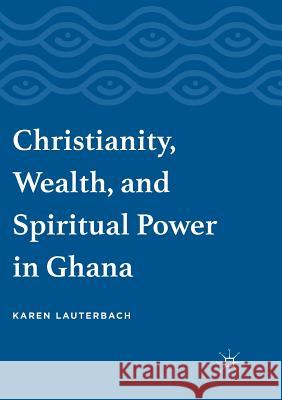Christianity, Wealth, and Spiritual Power in Ghana » książka
topmenu
Christianity, Wealth, and Spiritual Power in Ghana
ISBN-13: 9783319815299 / Angielski / Miękka / 2018 / 221 str.
Kategorie:
Kategorie BISAC:
Wydawca:
Palgrave MacMillan
Język:
Angielski
ISBN-13:
9783319815299
Rok wydania:
2018
Wydanie:
Softcover Repri
Ilość stron:
221
Waga:
0.29 kg
Wymiary:
21.01 x 14.81 x 1.3
Oprawa:
Miękka
Wolumenów:
01
Dodatkowe informacje:
Wydanie ilustrowane











